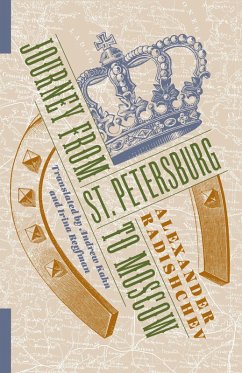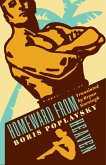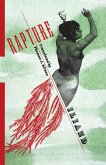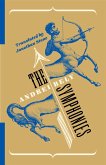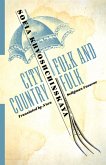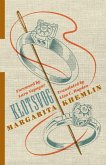Alexander Radishchev's Journey from St. Petersburg to Moscow is among the most important pieces of writing to come out of Russia in the age of Catherine the Great. An account of a fictional journey along a postal route, it blends literature, philosophy, and political economy to expose social and economic injustices and their causes at all levels of Russian society. Not long after the book's publication in 1790, Radishchev was condemned to death for its radicalism and ultimately exiled to Siberia instead.
Radishchev's literary journey is guided by intense moral conviction. He sought to confront the reader with urgent ethical questions, laying bare the cruelty of serfdom and other institutionalized forms of exploitation. The Journey's multiple strands include sentimental fictions, allegorical discourses, poetry, theatrical plots, historical essays, a treatise on raising children, and comments on corruption and political economy, all informed by Enlightenment arguments and an interest in placing Russia in its European context. Radishchev is perhaps the first in a long line of Russian writer-dissenters such as Herzen and Solzhenitsyn who created a singular literary idiom to express a subversive message. In Andrew Kahn and Irina Reyfman's idiomatic and stylistically sensitive translation, one of imperial Russia's most notorious clandestine books is now accessible to English-speaking readers.
Radishchev's literary journey is guided by intense moral conviction. He sought to confront the reader with urgent ethical questions, laying bare the cruelty of serfdom and other institutionalized forms of exploitation. The Journey's multiple strands include sentimental fictions, allegorical discourses, poetry, theatrical plots, historical essays, a treatise on raising children, and comments on corruption and political economy, all informed by Enlightenment arguments and an interest in placing Russia in its European context. Radishchev is perhaps the first in a long line of Russian writer-dissenters such as Herzen and Solzhenitsyn who created a singular literary idiom to express a subversive message. In Andrew Kahn and Irina Reyfman's idiomatic and stylistically sensitive translation, one of imperial Russia's most notorious clandestine books is now accessible to English-speaking readers.
Dieser Download kann aus rechtlichen Gründen nur mit Rechnungsadresse in A, D ausgeliefert werden.

